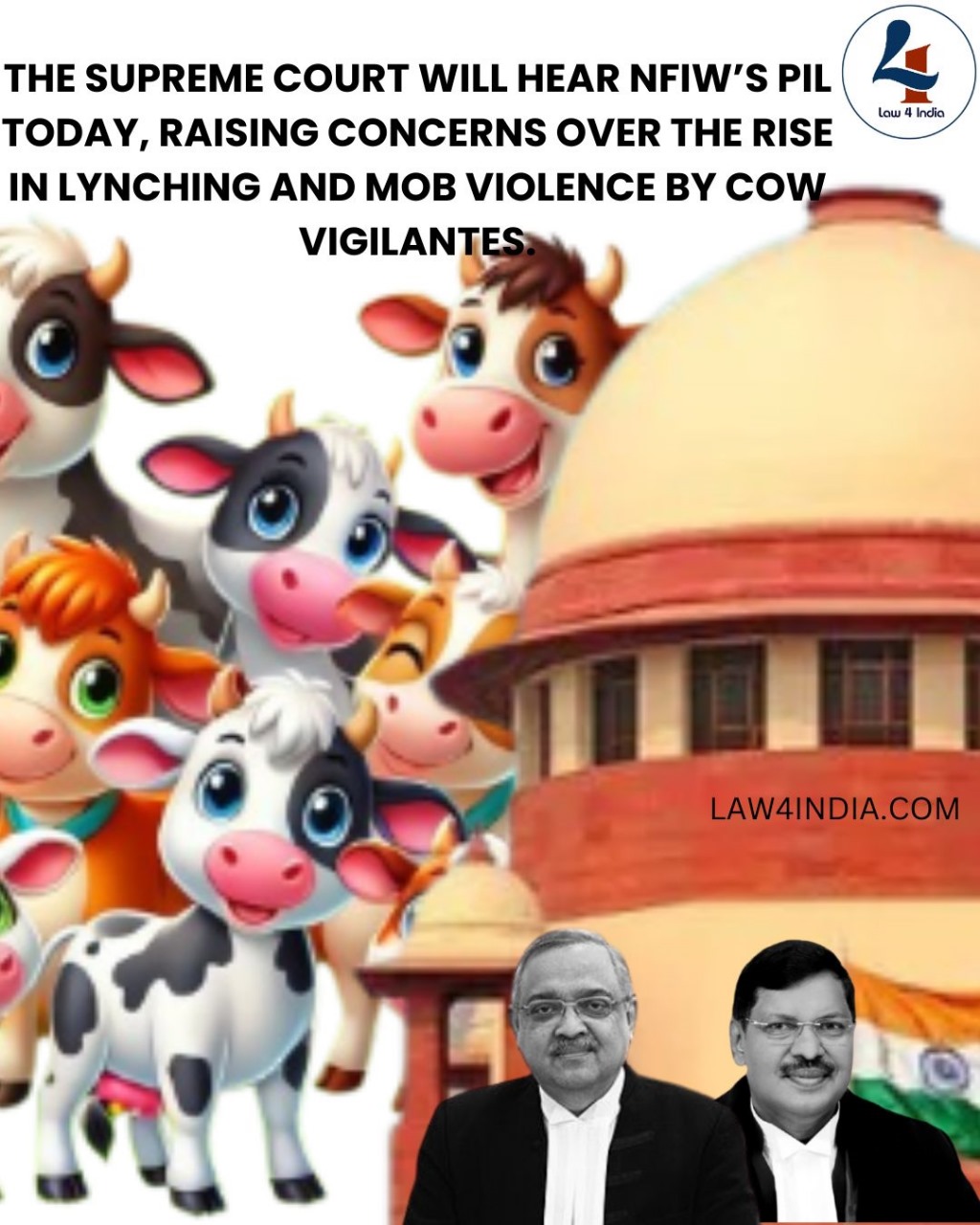-By Rakshit Mathur
A significant case involving mob lynching in the name of cow protection was heard by the Supreme Court today. The National Federation of Indian Women (NFIW) filed a Public Interest Litigation (PIL), which expressed grave concerns about private organisations abusing the legal system in the name of stopping cattle smuggling. The case was heard by the Bench of Justice B.R. Gavai and K. Vinod Chandran
Solicitor General Tushar Mehta argued that victims of mob lynching would receive compensation. They also noted that there are already broad guidelines in place to prevent these kinds of situations, and victims have legal recourse in the event that there is any non-compliance.
The petitioner strongly disagreed, claiming that private organisations have been granted police-like authority. “These organisations are bypassing the legal system and pursuing justice on their own. They argued that the spirit of the rule of law must be preserved.
The petitioner further raised concerns over increasing matters of mob lynching and Cow Vigilantism across 13 Indian states. Following to it Solicitor General Tushar Mehta clarified ,”I cannot defend state governments; I am representing the Central Government,” the government’s attorney said in response.
The Court inquired of the petitioner, “Have you impugned the validity of those notifications?
Furthermore, the Solicitor General argues that mob lynching and cow vigilantism are already recognized offenses under the BNS, and there are prescribed punishments for such acts.
The Court proceed to dispose of the case highlighting , it is necessary to follow the current directions.
The court reiterated that the Supreme Court had previously provided explicit rules to stop mob lynching in the 2018 case of Tehseen Poonawalla v. Union of India. Additionally, Bench directed to provide uniform amount to victims of mob lynching citing that amount will differ from case to case adding that If one suffers a minor injury and another a serious one, compensation will vary based on the circumstances of the case and the severity of the injury. Bench expressed that while being here in Delhi they cannot observe every part of India and directed the victims to seek remedies from the competent court in their Jurisdiction. Bench emphasized that here should be strict compliance with the directions.

